The Jesuit Community Center (JCC) is perched between Bellarmine Hall and the Dolan School of Business, adding to the aesthetic of the architecture that amplifies the idyllicism of Fairfield’s campus.
The black siding and wood paneling of the JCC render an image of a Nordic ski lodge. But, the small statue placed by the entrance indicates the building’s true purpose.
The statue of St. Ignatius of Loyola, the founder of the Society of Jesus, symbolizes the tradition of Ignatian spirituality that guides Fairfield’s Jesuit community.
The 20,000 square foot residence contains administrative offices, a chapel, dining room and a library. The JCC houses 12 Jesuits and is an extension of their overarching mission.
According to Gray Organschi Architecture,“the Jesuits sought a building that would not only provide for their own immediate needs, but might serve as an exemplar of ecological architecture.”
The Jesuits’ website emphasizes the prioritization of environmental justice, as their “advocacy promotes sustainable environmental policies that protect nature and care for the most vulnerable.”
Gray Organschi states that the JCC is topped by a garden roof that “controls and filters stormwater, reduces heat loss and increases the durability of the roof membrane beneath it.”
Moreover, the JCC is equipped with “a closed-loop geothermal heating and cooling system, fed by 15 wells beneath the parking area, that provides energy to the building without fossil fuels.”
Since its completion in 2009, the JCC has been awarded two local and one regional American Institute of Architects (AIA) Awards, as well as Top Ten House of the Year by AIA National. Additionally, it was highlighted in a 2011 New York Times article entitled “Teach, Pray, Live”.
The article, written by Fred A. Bernstein, closed with a quote from Rev. Dr. Paul J. Fitzgerald, then Senior Vice President for Academic Affairs at Fairfield.
Father Fitzgerald predicted that “there should be enough Jesuits at Fairfield to operate the building for about 25 years.”
After 12 years, the Jesuit community continues to play a formative role in animating the ideals of the institution.
The following interviews with six current Fairfield Jesuits underscore the influence of their community, which extends far beyond the walls of the JCC.
Rev. John Mulreany, S.J.
The Fairfield Jesuit Community is overseen by Superior Rev. John Mulreany, S.J..
“There are two main components of my role,” Mulreany articulated. “The first component would be caring for the men in the community so that they can be apostolically effective. The other part would be caring for the institution, which involves being in conversation with President [Mark] Nemec at Fairfield University and President [Christian] Cashman at Fairfield Prep.”
Mulreany facilitates the Jesuits’ engagement with the wider community.
However, he considers the teaching of the “Finding God in All Things” course to be his most meaningful mode of outreach.
“It is the anchor of my week,” Mulreany declared. “The papers that the students write are very rich. I feel very privileged that they can share about themselves in writing those papers, which are about their personal and spiritual lives. It gives me an opportunity to offer some encouragement and point out a few things about Ignatian spirituality that relate to their experience.”
Mulreany’s leadership is informed by an abundance of service, which has allowed him to explore his own spirituality in a global context.
“My first major assignment as a priest was to work in Western Micronesia on the island of Yap where Jesuits from this province have served since after World War II,” Mulreany illuminated. “We went at the request of the local community to help start a Catholic high school. The idea was always to make sure this was a locally run and led school. So, that’s the way it is now.”
After spending seven years in Micronesia, Mulreany went on to work in Manhattan, Southern Sudan and China. Regardless of the setting, Mulreany strives “to be very humble and open to growth, and to really walk with the local church community.”
At Fairfield, he recognizes the difficulties students may face as they navigate their spiritual and academic lives.
In closing, Mulreany offered a thoughtful reminder.
“Remember to be grounded in the spiritual practices and the other practices that you have to care for yourself,” Mulreany urged. “You need those things more during times of stress, and it’s in those times when we’re tempted to do less of those things. When we’re feeling under tremendous stress, remember to ignore the voices of discouragement. Trust in the good work you’ve done so far and that you’ll see it through to success.”
Rev. Michael J. Doody, S.J., ’70
As a Special Assistant in the Office of the Dean of Students, Rev. Michael J. Doody, S.J., ’70 has left a lasting impression on the institution throughout his 17 years of service.
As a student in the late 1960s, Doody recalled that there were 85 Jesuits who “lived in Bellarmine Hall [and] on each corridor of the four dorms on campus.”
Doody was “active in his faith and found it easy to converse with lots of Jesuits, [who] all seemed happy, dedicated and committed.”
As a result of these interactions, Doody decided to give the Jesuit lifestyle “a try” and he “never looked back.”
He mentioned his experience in the Regency program, where Jesuits are given “an opportunity to work in a Jesuit apostolate to demonstrate [their] commitment and ability to live the Jesuit life.”
Doody taught English and Religion at St. George’s College in Kingston, Jamaica.
He disclosed that he “almost got murdered in downtown Kingston,” an intriguing fact that he classified as “a story for another day.”
Ultimately, Doody returned to Fairfield as the Director of Campus Ministry in 2006.
In 2012, he was named the Director of Restorative Mentoring and “worked with students, mostly men, whose behavior put them at risk for expulsion.”
In this capacity, Doody provided the support required to enable students to unlock their true potential at Fairfield.
Additionally, Doody is the Chaplain to the Glee Club and an active member of the Fairfield community at large.
“I interact with students by attending numerous athletic events, plays and concerts,” Doody communicated. “I also take lunch each day in the Tully and sit with students. I think this is one of the most effective aspects of my ministry as a priest here at Fairfield.”
This semester marks the end of Doody’s time at Fairfield. He is “sad to be leaving” and looks fondly at the countless memories he has acquired over the years.
His favorite memories “which can cause [him] to tear up, are watching students with whom [he has] worked closely receive their diplomas, officiating at the weddings of young alumni and then baptizing their children.”
Rev. Kevin O’Brien, S.J.
Rev. Kevin O’Brien, S.J. serves as the Dean and Executive Director of the Bellarmine Campus of Fairfield University and teaches in the Department of Religious Studies.
O’Brien was introduced to the Jesuits as an undergrad student at Georgetown University, where he was “attracted to their teaching, their down-to-earth spirituality, and their commitment to justice.”
At the time, O’Brien considered joining the Jesuits. But, instead, he decided to go to law school.
After a few years of practicing law, he felt called to serve as a Jesuit priest and began his ten-year ordination process.
“I loved this time, because I was able to study different subjects and serve in different ministries in various states and countries,” O’Brien reflected.
His vocation has been focused in higher education, both as a teacher and an administrator.
Outside of academia, O’Brien has “really enjoyed [his] service to migrants and refugees through the Jesuit Refugee Service.”
Notably, O’Brien is the author of the award-winning book “The Ignatian Adventure” and the recently published “Seeing with the Heart”.
O’Brien emphasized that, “there are many wonderful things about being a Jesuit, but among the best are the people I have met along the way, who have shown me God’s love in remarkable ways.”
At the JCC, O’Brien explained that he lives “with other Jesuits with diverse personalities, backgrounds and interests, and [they] have a lot of fun together.”
He expressed gratitude for the JCC’s caring staff and proximity to nature, but shared a light-hearted complaint about his feathered neighbors.
“My favorite spot is out back on the porch, overlooking our various gardens,” O’Brien remarked. “The only downside are the turkeys who live out back. They are very noisy!”
Rev. Keith Maczkiewicz, S.J., ’04
As a Theatre major at Emerson College, Rev. Keith Maczkiewicz, S.J., ’04 would sneak out of his dorm to attend mass on Sunday mornings.
Maczkiewicz felt disconnected at his non-religious institution, and realized that the Church was the “only place that felt like home.”
By the fall of his sophomore year, Maczkiewicz had decided to transfer to Fairfield University.
Within his first weeks at Fairfield, United States history was forever altered by the tragedy of Sept. 11 attacks in New York City.
As the country grappled with this devastation, Maczkiewicz remembered the service presented at the Egan Chapel.
“It was packed,” Maczkiewicz described. “They put an altar out on the plaza and all the Jesuits were there. I remember that this was the moment where I truly felt at home because I thought, ‘This is a community where, when something big happens, this is how they gather.’ And that became very important for me.”
Two decades later, Maczkiewicz was appointed as Fairfield’s Director of Campus Ministry and serves as the University Chaplain.
In these positions, Maczkiewicz is committed to “changing the narrative and changing the benchmarks” associated with a college education.
“At every school I’ve worked at, they are constantly talking about return on investment,” Maczkiewicz acknowledged. “Every fall, they publish an infographic and a story about how much money their first-year graduates make. I don’t think that is a valuable judgment of a Jesuit education. Frankly, I’m much more interested in how many hours a week graduates are volunteering.”
According to Maczkiewicz, the success of Jesuit education is derived from the “interplay between faith and reason.”
“If we’re doing this right, meaning Catholic education, we should be taking both scholarship and faith seriously, and those things have to be mutually informing,” Maczkiewicz asserted. “What you find under the microscope should help you ask better questions about what you believe and what you believe should help you ask better questions about what you’re studying.
“And if those two things are not happening, going back and forth, we’re just UConn with crucifixes. And, if that’s what we are, then the Jesuits should leave,” he firmly believes.
Rev. John P. Murray, S.J., ’76
In the 1970s, Rev. John P. Murray, S.J., ’76 was a member of Fairfield’s Glee Club under the direction of moderator Rev. John P. Murray, S.J.
As a student, Murray joked that he “got a lot of ribbing” for having the same exact name as the Jesuit. But, he considers their shared moniker to be a subtle sign of God’s love.
“Some people would call it a coincidence or some people would call it grace, depending on what point of view you take” Murray noted. “I took the point of view of grace.”
This perspective persisted through Murray’s graduation in 1976, as he was moved by the “growing sense that the Jesuits were where [he] wanted to be.”
Murray entered the Society of Jesus in 1977 and has been answering his “call from God” for 46 years.
Murray now serves as the Assistant Director of the Murphy Center for Ignatian Spirituality and teaches a “Christian Spirituality” course at Fairfield.
He has embraced the complexities of the Jesuit lifestyle and remains committed to deepening his relationship with God.
Murray examined a challenging period in the history of the Catholic Church through the lens of his experience as a Liaison to the Provincial for Sexual Misconduct Cases in Massachusetts.
“I think most people are aware that the Catholic Church has gone through a tremendous crisis since probably 2002” Murray stated. “It has been a good 20 years now of dealing with the reality that there was not only sexual abuse among priests and religious leaders, but there was an abuse of power.”
He continued, “This behavior was unacceptable on all sorts of levels … It was horrifying for everyone, specifically the victims. They are the ones that have suffered the most.”
Murray’s job was to listen to the victims “to help them and to give them a sense of healing.”
“It was a very emotional time for me personally, but also a deeply spiritual experience,” Murray said. “God can do far greater healing than I could ever do, or psychologists could ever do. Or a settlement of millions of dollars could. And many people disagree with me. But, that’s alright. I respect that because I was never abused. So, I cannot say I understand. I can only listen.”
Fr. Nicholas M. Colalella, n.S.J.
Fr. Nicholas M. Colalella, n.S.J. knew he wanted to be a Jesuit since he was seventeen years old.
In his Latin classroom at Xavier High School in New York City, Colalella felt as if God was speaking directly to him.
“I was in the military program at Xavier and there was a poster of St. Ignatius, a soldier, laying down his armor in front of a statue of the Blessed Virgin Mary,” Colalella narrated. “The next poster was of Ignatius near Rome, where he had a vision of God saying, ‘I want you to serve me.’ I took that as God talking to me. In that simple moment, I was convinced that I was meant to dedicate myself to the Church.”
Before entering the Jesuit novitiate in August 2021, Colalella was ordained as a priest in the Diocese of Brooklyn and traveled to Jerusalem to study at Hebrew University.
In Jerusalem, Colalella lived in “an international house with Jesuits from all over the world, including India, France, Italy and Israel itself.”
Colalella observed that the residents “were bound together by the common language of Ignatian spirituality.”
He noted that this common language, which transcends cultural barriers, aligns with the Jesuit tradition of being “Friends in the Lord.”
This friendship is applicable to the friendship with oneself, which must be nourished in the same manner as external relationships.
As a Jesuit novitiate, Colalella’s formation is defined by frequent travel. Therefore, he relies on this tradition to ground him as he navigates new environments.
“Of course, one of the challenges of Jesuit life is that you make connections and then you leave,” Colalella revealed. “You want to stay and see the fruit of your work. But, by letting go, it teaches us that it’s not just us at work, but God is also at work. So, that gives us a certain freedom to detach.”
In a matter of weeks, Colalella will be leaving Fairfield and moving once again. As he prepares for his departure, he finds guidance through prayer.
“The culmination of Ignatius’ Spiritual Exercises is the “Suscipe,” a prayer that says, ‘Take, Lord, and receive everything I have.’” Colalella elucidated. “It’s important to find stability in our interior lives and pray everyday for the grace of indifference and detachment. And, if you’re willing to give to God, God will give to you. It’s a beautiful exchange.”
“Ad Majorem Dei Gloriam”
In the final moments of each interview, the men were asked to select the Jesuit ideal that they consider to be of greatest importance.
A prominent answer was “Ad Majorem Dei Gloriam,” a Latin saying which translates to “For the greater glory of God.”
As the unofficial motto of the Society of Jesus, the phrase is the foundation of the mission of Fairfield’s Jesuit Community. The ideal has sparked a commitment to scholarship, justice and truth that has been present since the University’s founding in 1942.
The Jesuits play an integral role in shaping the campus climate, and will continue to inspire students and faculty to pursue their passions and live “for the greater glory of God.”

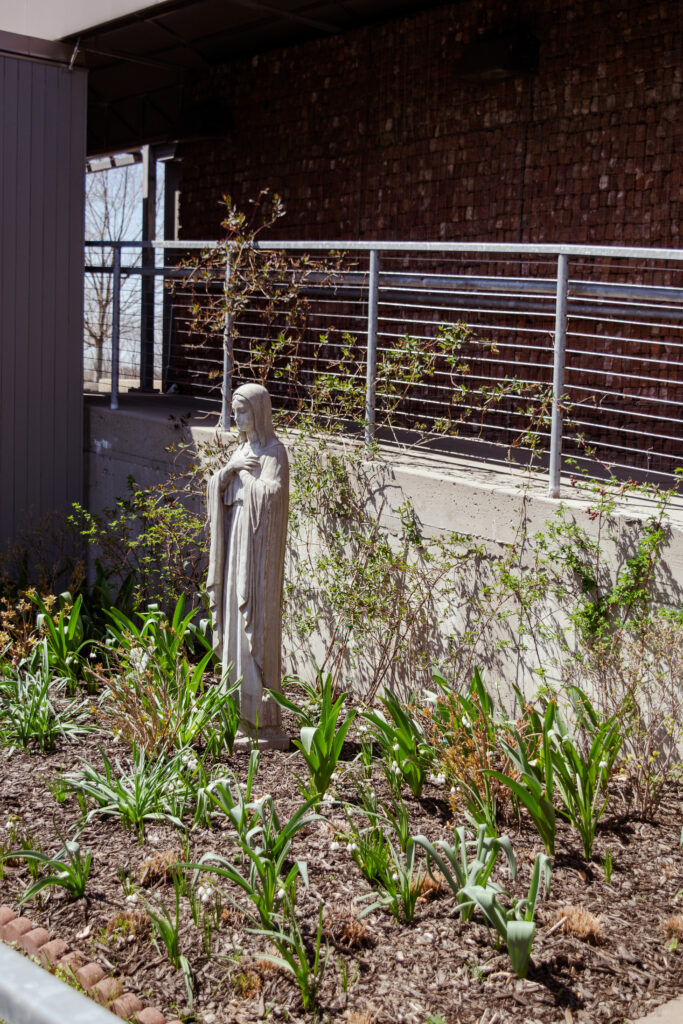
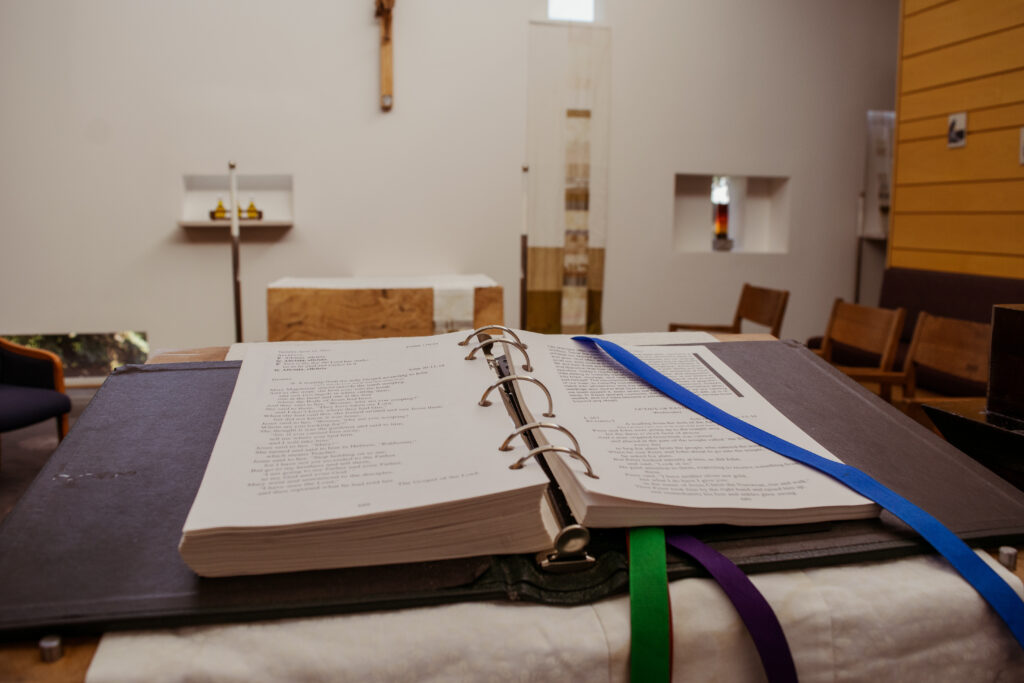
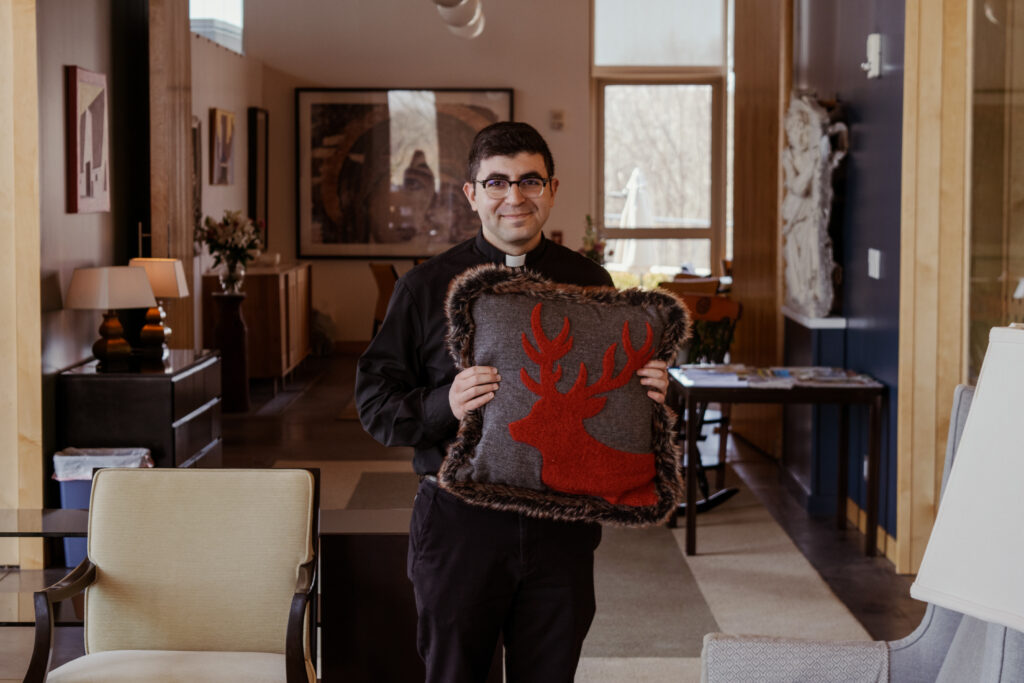
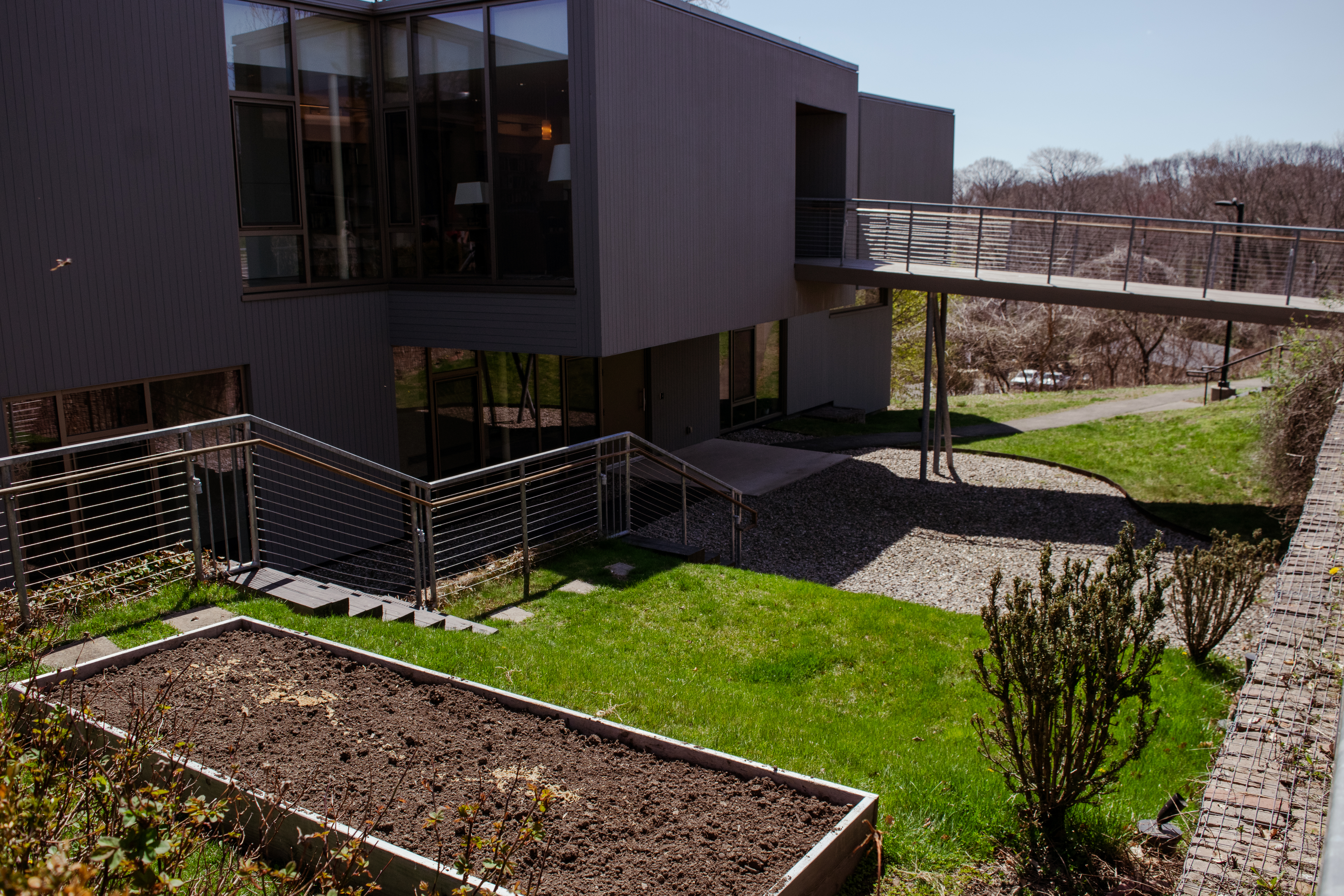
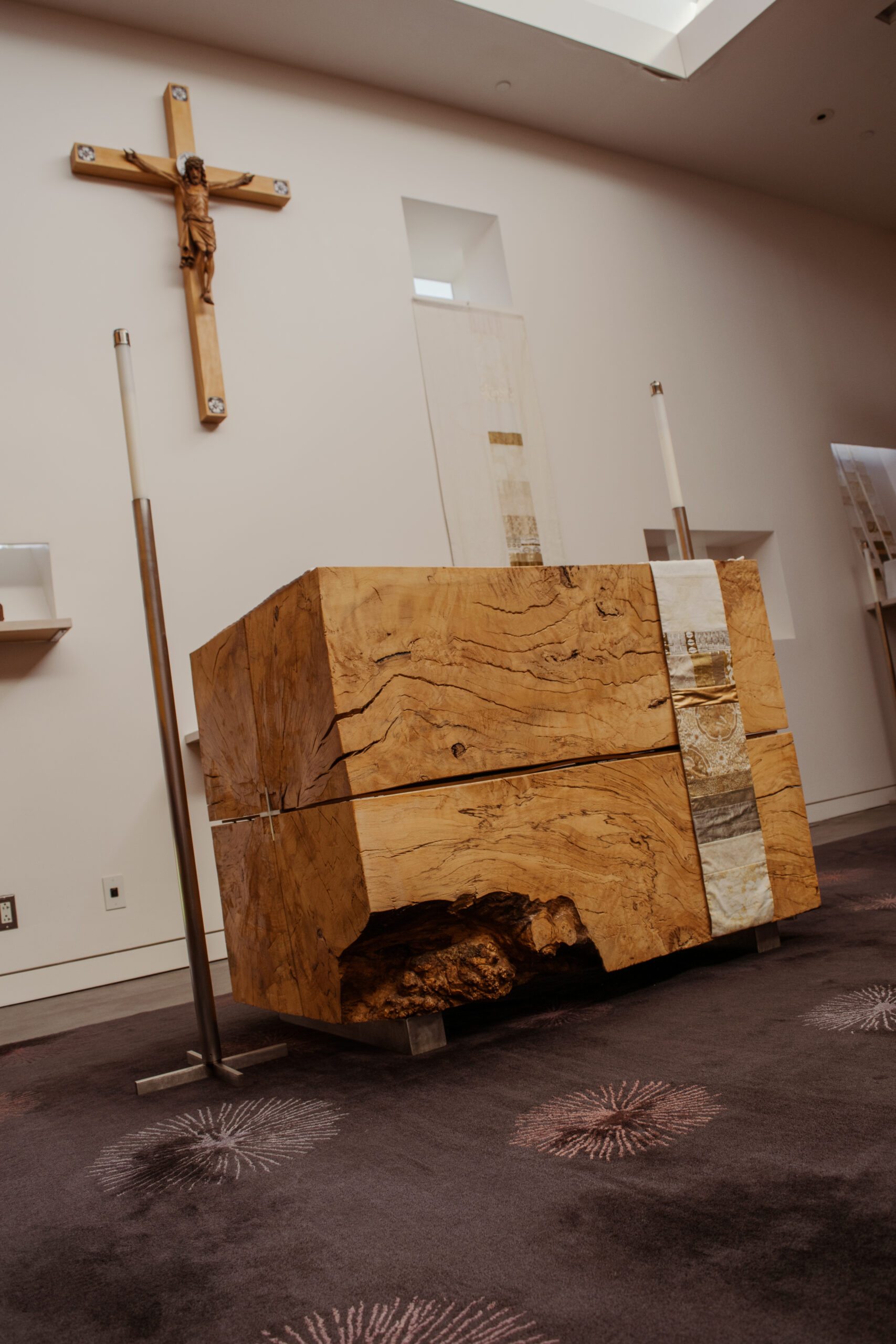
Photos Courtesy of Kyler Erezuma/The Mirror

Leave a Reply